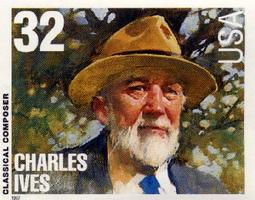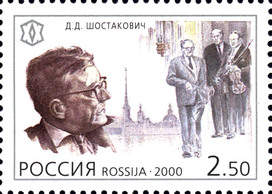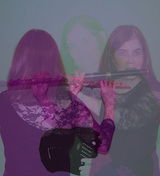We’ve been discussing marketing and “self-promotion” in college this week. We’ve had lengthy discussions about music careers, the different job strands, from the typical (teaching and performing) through the unexpected (transcriber, score librarian or lyricist).
I recently received a letter, officially informing me that my retirement age has been delayed to 62. I must be among the first to be affected. I’m nearly at the end of my working life, and I can see that I’m never going to make a living from my music. I’ve had good careers, good jobs, good opportunities. I started working when there was nearly full-employment and a plethora of opportunities. It’s much harder for young people today in the current financial recession - there are fewer opportunities and fewer full-time jobs. Personally, I think it’s more important for the few jobs there are to go to younger people - it’s their time.
There is still room for self-promotion though!
I’ve done some instrumental teaching in the past - on a voluntary basis. More supporting really - I taught trad tunes to an Argentinian AFS student during her stay in Scotland. I’ve had the odd request to teach adults. While I worked for years teaching IT to adults, I don’t feel qualified to teach music professionally. It’s such a responsibility - you hold a person’s musical journey in your hands. Great teachers nurture great musicians, bad teachers groove poor technique, indifferent teachers at best miss opportunities to be better. I think I’ll leave instrumental teaching to the great, and so won’t need to worry about reapplying for disclosure clearance, newspaper adverts or repolishing my CV.
Similarly, while I play in bands that do community gigs, I don’t see myself working as a gigging musician. On a sliding scale I may be closer to the top than the bottom in musicianship, but there few opportunities to make serious money performing. Nevertheless, I do have aspirations. I’d love to play in an Edinburgh orchestra. I’d love to play in, or even create, a baroque ensemble. I’ll look for more opportunities to perform trad music such as Shindiggery, the Beach Band and a great informal group I play with, Baguettes. I may still need to audition, I may still need to rework my CV, but I won’t need to worry about creating publicity materials, sending out press releases, putting together a demo cd or creating a myspace page.
One of the most unexpected things about my music course has been creating and maintaining my website and my public blog, the ultimate in self-promotion! It’s been hugely satisfying to have a vehicle that reflects my “public face”. I love the fact that people I don’t know read my blog, and that I’ve had “conversations” about music with people I do know but don’t see on a regular basis. (If you’re the reader from google.se and you’re still reading, know that you are appreciated, as are all the rest of you.) So that’s where my self-promotion efforts are going to go. I may redesign my business cards and add the website address to them. I may add my web address to the flute and concertina forums I participate in, and I may go out busking and post my web address on my music case.
I am going to keep blogging, and listening to loads of varied music. I am going to keep on playing, developing my technique, my expression and my musical “voice”. I understand now that the sort of music I play may change over time. That’s a good thing, because there‘s so much to learn and so many things to experience.
Music is such a journey. I’m just happy to still be walking on that road.
PS If you're looking for a session musician - flute or concertina, or you've got a vacancy in your orchestra or ensemble... please, get in touch!
I recently received a letter, officially informing me that my retirement age has been delayed to 62. I must be among the first to be affected. I’m nearly at the end of my working life, and I can see that I’m never going to make a living from my music. I’ve had good careers, good jobs, good opportunities. I started working when there was nearly full-employment and a plethora of opportunities. It’s much harder for young people today in the current financial recession - there are fewer opportunities and fewer full-time jobs. Personally, I think it’s more important for the few jobs there are to go to younger people - it’s their time.
There is still room for self-promotion though!
I’ve done some instrumental teaching in the past - on a voluntary basis. More supporting really - I taught trad tunes to an Argentinian AFS student during her stay in Scotland. I’ve had the odd request to teach adults. While I worked for years teaching IT to adults, I don’t feel qualified to teach music professionally. It’s such a responsibility - you hold a person’s musical journey in your hands. Great teachers nurture great musicians, bad teachers groove poor technique, indifferent teachers at best miss opportunities to be better. I think I’ll leave instrumental teaching to the great, and so won’t need to worry about reapplying for disclosure clearance, newspaper adverts or repolishing my CV.
Similarly, while I play in bands that do community gigs, I don’t see myself working as a gigging musician. On a sliding scale I may be closer to the top than the bottom in musicianship, but there few opportunities to make serious money performing. Nevertheless, I do have aspirations. I’d love to play in an Edinburgh orchestra. I’d love to play in, or even create, a baroque ensemble. I’ll look for more opportunities to perform trad music such as Shindiggery, the Beach Band and a great informal group I play with, Baguettes. I may still need to audition, I may still need to rework my CV, but I won’t need to worry about creating publicity materials, sending out press releases, putting together a demo cd or creating a myspace page.
One of the most unexpected things about my music course has been creating and maintaining my website and my public blog, the ultimate in self-promotion! It’s been hugely satisfying to have a vehicle that reflects my “public face”. I love the fact that people I don’t know read my blog, and that I’ve had “conversations” about music with people I do know but don’t see on a regular basis. (If you’re the reader from google.se and you’re still reading, know that you are appreciated, as are all the rest of you.) So that’s where my self-promotion efforts are going to go. I may redesign my business cards and add the website address to them. I may add my web address to the flute and concertina forums I participate in, and I may go out busking and post my web address on my music case.
I am going to keep blogging, and listening to loads of varied music. I am going to keep on playing, developing my technique, my expression and my musical “voice”. I understand now that the sort of music I play may change over time. That’s a good thing, because there‘s so much to learn and so many things to experience.
Music is such a journey. I’m just happy to still be walking on that road.
PS If you're looking for a session musician - flute or concertina, or you've got a vacancy in your orchestra or ensemble... please, get in touch!



 RSS Feed
RSS Feed